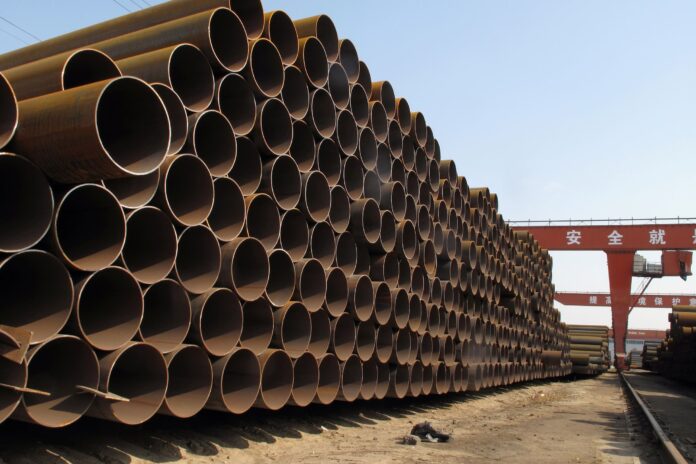Abuja, Aug. 30, 2023: The Federal Government has taken significant steps to rejuvenate the nation’s steel sector, including a comprehensive insurance coverage for all ongoing steel projects within Nigeria.
The Minister of Steel Development, Prince Shuaibu Audu, made this declaration during a crucial meeting with key agencies under the ministry.
The projects are the Ajaokuta Steel Company Limited, the National Iron-Ore Mining Company, Itakpe, the National Steel Raw Materials Exploration Agency; Metalurgical Training Institute and National Metallurgical Development Center, Jos.
Audu said that the deliberate policy of the present administration to introduce insurance cover for steel projects was a critical step to mitigate the risks and uncertainties inherent in large-scale developmental endeavours.
“By providing this insurance coverage, the government aims to foster an environment that is conducive to attracting investments into the steel sector.
“It will also help in securing financing and fast-tracking the successful completion of various steel related initiatives across the country.
“It will ensure a structured successful implementation of this policy and the ministry will outline a comprehensive two-year activation plan.
“The strategic plan is designed to catalyse the revival of all steel associated interventions which underscored a steadfast commitment to achieving tangible progress within stipulated timeframe,” he said.
Audu said that the journey toward revitalising the steel sector was beyond insurance coverage.
He said that the government has devised a comprehensive overhauling strategy to tackle the multi-faceted challenges impeding the sector’s growth.
According to him, central to this strategy is the optimisation of skilled labour and enhancing security measures to ensure safe and productive working atmosphere.
The minister said that other indices for solutions to enhance the sector was to effectively rehabilitate rail infrastructure connecting the Itakpe and Ajaokuta Steel Complexes.
He said that a functional rail network for transportation of raw materials and finished products was necessary, adding that the potentials to significantly boost the operational efficiency of these complexes, would positively influence the entire street value chain.




